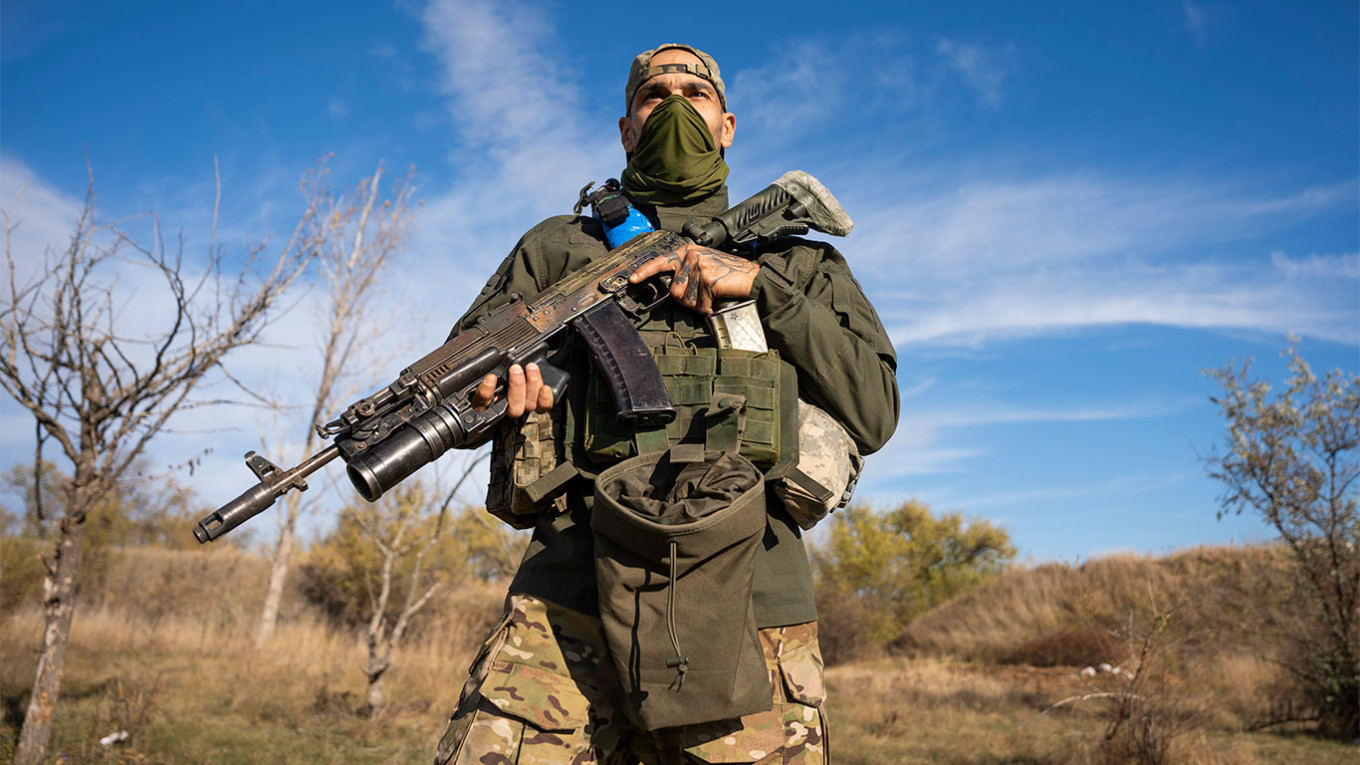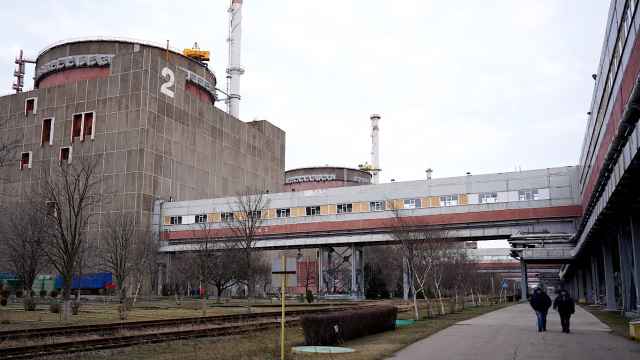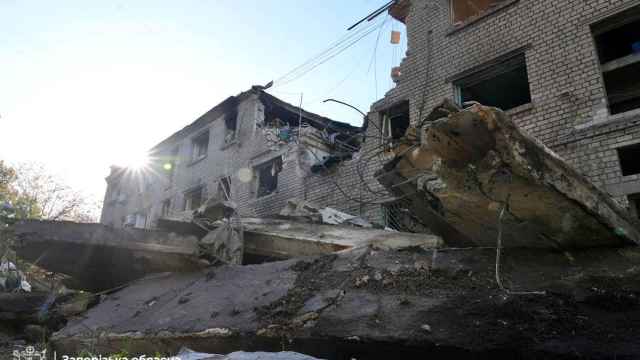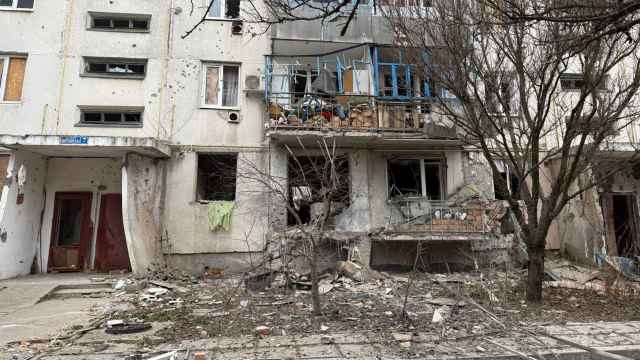ZAPORIZHZHIA REGION, Ukraine — Kaneki, a 24-year-old soldier attached to the Ukrainian Ground Forces’ Reco Kilo unit, sits behind the wheel of his pickup truck, taking a long drag on his cigarette.
Behind him, the tall factory chimneys of Zaporizhzhia, blurred by the sun, vanish into the horizon.
The sound of Russian artillery pounding the Ukrainian lines several dozen kilometers away can be heard in the distance.
Kaneki steps on the gas, taking us through the southern steppes on the road to Orikhiv.
“This won't last long,” he yells over the engine noise. “Israel versus Gaza? It’s going to calm down quickly.”
Since the start of the monthlong war between Israel and Hamas, much of the world, including many in Ukraine, has turned its eyes to the Middle East.
On the front lines of Russia’s invasion of Ukraine, some are optimistic about this new war’s impact on Kyiv — others are less so.
Ukrainian soldiers interviewed for this piece asked to go by their nom de guerre to protect their identities.
Kaneki, usually cheerful, is among the skeptics.
“Even though I think this war will be quick, I’m still afraid the Russians will use the media distraction to start doing dirty things,” he says. “Like using chemical weapons against us.”
His comrade Strika, 38, fears being forgotten by the rest of the world.
“I’m just afraid that tomorrow Europe and the United States will decide it’s not worth helping Ukraine anymore, and we’ll end up having to stop endless waves of Russians.”
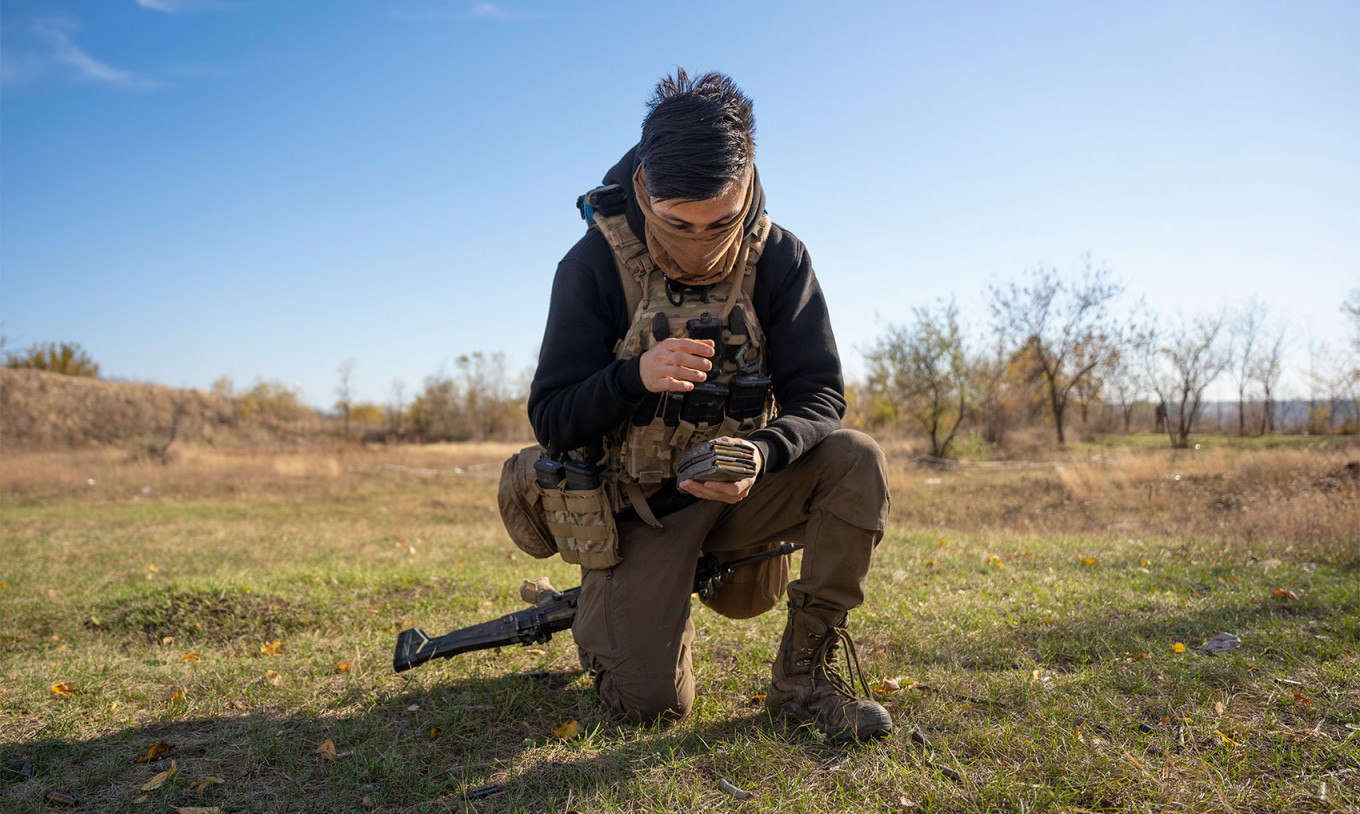
Strika clings to his AK-74 between potholes. He says he is concerned their fight will be forgotten.
He fears public opinion will turn away from the war in Ukraine and forget everything that has happened, from the crimes committed by Russian forces and the Wagner mercenary group to the sacrifices of Ukrainians.
“I’m afraid we'll be forgotten, and Ukraine will become a new Afghanistan,” he said. “I’m afraid public opinion will get tired and think this war is futile. But what scares me the most is that they’ll forget our courage and forget all our dead and all our comrades who sacrificed their lives.”
Both have their concerns about the impact of the war in Gaza but, from their position near the frontlines, these geopolitical considerations seem distant.
“When you have your feet in the mud, you don’t think about that too much. You don’t even think about Ukraine, or freedom, or even victory,” Kaneki said.
“The most important thing is your comrades, getting them out alive. You don't think about anything else.”
'The West is too involved'
Smiley, a member of the unit who had been a butcher in civilian life, is less concerned.
He said he believes the war in Israel will have positive consequences for Ukraine.
“The United States will never abandon Ukraine. They’re not here for our pretty eyes, but because they have no interest in us losing,” said the 25-year-old, whose long beard softens the square features of his tattoo-covered face.
“The West is too involved to withdraw or reduce its aid.”
He pauses before explaining that Israel and Ukraine are vastly different in terms of the intensity of their conflicts and their weapons and equipment needs.
“Here, we need an astronomical number of weapons, shells, men and ammunition every day to face Russia. Israel has one of the best armies in the world and is facing Hamas, a small terrorist group. We’re facing the Russian army — it's not comparable.”
Smiley also believes that the war in Gaza could force Israel to join the war effort and start helping Ukraine.
Israel, despite being a staunch ally of the United States, has so far maintained a policy of balance and restraint in the Russia-Ukraine war, refraining from sending substantial military aid to Kyiv.
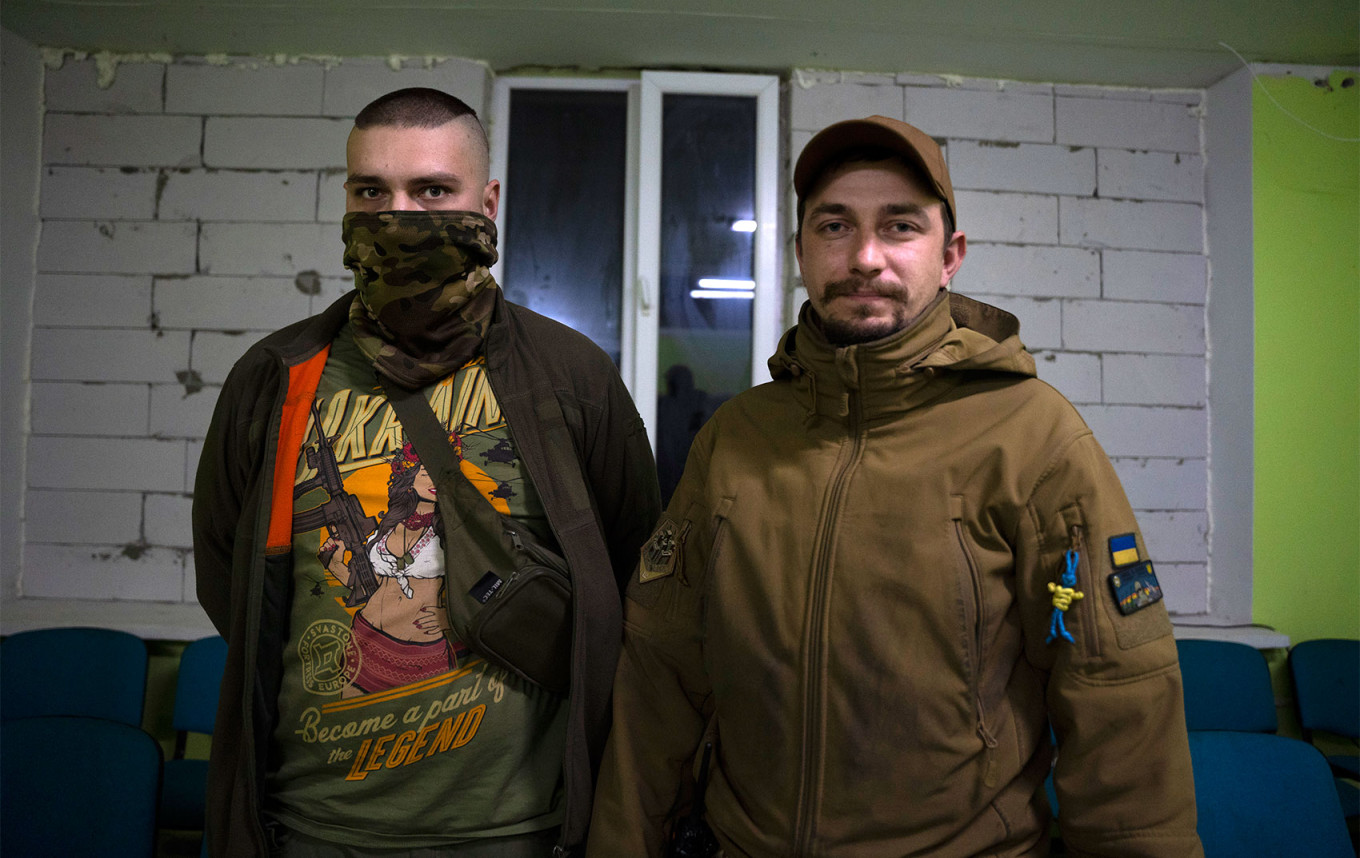
A key reason for this is that Russia has controlled the Syrian sky since 2015 and implicitly allows Israeli aircraft to strike pro-Iranian militias in the region.
This consideration has been enough for Israeli Prime Minister Benjamin Netanyahu to refuse to help Ukraine. The latest outbreak of hostilities in Gaza could change that, as the Israelis realize the importance of ties between Russia, Iran, and Hamas.
Fear of being forgotten
Another member of the unit, Vlad, a 30-year-old drone operator from the Kharkiv region, echoes Smiley's sentiment.
“The Israelis have realized that Hamas is also playing for the Russians,” he explains.
“There's really this Hamas-Iran-Russia triangle.”
Vlad is convinced that after the war between Hamas and Israel, which he says will be short, Israel will have no choice but to provide Ukraine with all the assistance it needs.
When asked what equipment they would like to have, Vlad replies that he’s not sure.
“Anything is good,” he says before bursting into laughter.
Smiley, a weapons enthusiast, dreams of one thing: for Israel to provide Kyiv with its air defense systems.
“If they could give us Iron Beam, that would be extraordinary,” he says, referring to a new Israeli weapon system that can shoot down rockets or missiles using a laser beam.
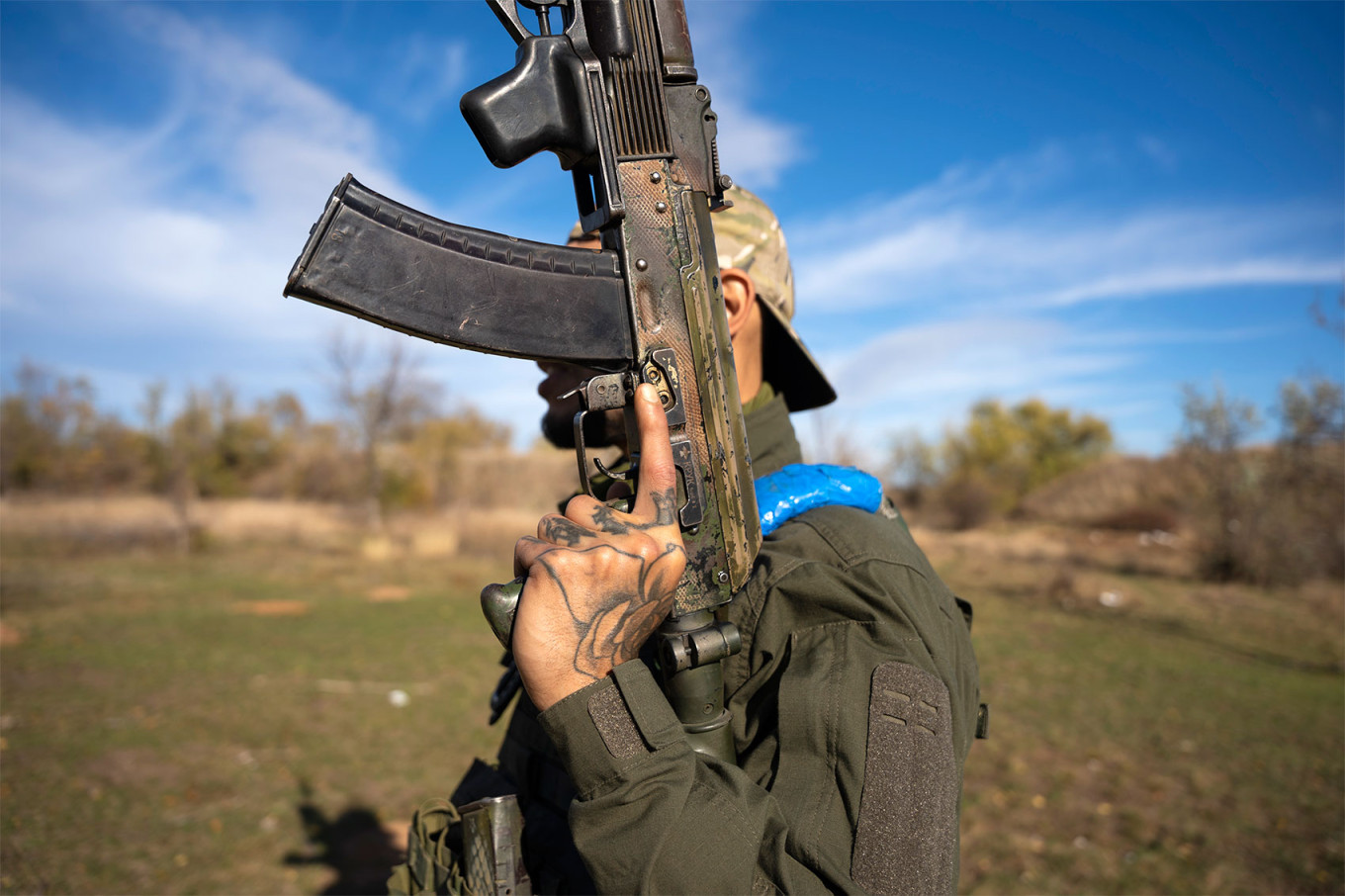
Sergei, a member of the unit who goes by the nom de guerre Hussar, is more concerned.
A former restaurant chef in Kharkiv, Sergei had just returned from a mission in the Donetsk region.
“My biggest fear is that the world will burn, and this nightmare of blood, death, mud, dirt, and crap will never end,” he explains, twirling the handlebar mustache that earned him his call sign.
“That this new war in the Middle East will derail and lead to a third world war.”
Hussar says he’s not afraid of Western aid drying up, but rather of the world forgetting and turning away from them.
“We’ve been fighting for almost two years,” says the 30-year-old soldier, who enlisted on Feb. 24, 2022, the first day of the full-scale Russian invasion.
“The Western aid we receive is drip-fed, but it helps us survive. But we mustn’t underestimate the psychological aspect of the support from Western public opinion.”
Hussar is also afraid that he will never be able to return to civilian life.
“The more days go by, the more I hate what I’ve become because of this war and because of the Russians,” he said. “I hate this bloodthirsty beast that I’ve turned into, I’m afraid I’ll never return to normal, and every day I have to fight against despair.”
Hussar’s eyes are filled with tears, and he nervously taps his right leg.
He explains that in any case, alone in his trench, he can never influence the course of the war, and sometimes it’s better not to think about it too much.
“All I can do is be there for my comrades, be a good fighter, take care of them, save them. If you think too much about politics, you can go mad,” Hussar says.
“All I want is to go home, buy a bouquet of flowers, lie in the grass, and gaze at the blue sky. But we’ll fight to the end, to our last breath.”
A Message from The Moscow Times:
Dear readers,
We are facing unprecedented challenges. Russia's Prosecutor General's Office has designated The Moscow Times as an "undesirable" organization, criminalizing our work and putting our staff at risk of prosecution. This follows our earlier unjust labeling as a "foreign agent."
These actions are direct attempts to silence independent journalism in Russia. The authorities claim our work "discredits the decisions of the Russian leadership." We see things differently: we strive to provide accurate, unbiased reporting on Russia.
We, the journalists of The Moscow Times, refuse to be silenced. But to continue our work, we need your help.
Your support, no matter how small, makes a world of difference. If you can, please support us monthly starting from just $2. It's quick to set up, and every contribution makes a significant impact.
By supporting The Moscow Times, you're defending open, independent journalism in the face of repression. Thank you for standing with us.
Remind me later.



